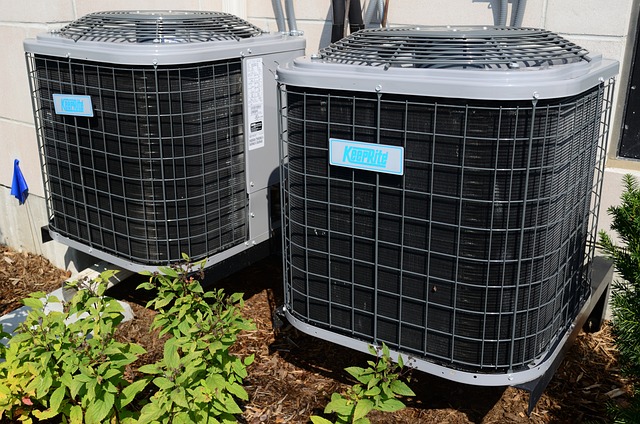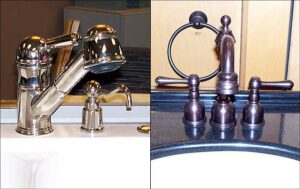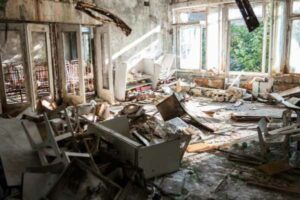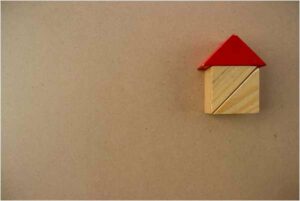Homeowners often face the challenge of deciding when to call an HVAC pro and when to handle minor issues on their own. Understanding the difference between a serious HVAC problem and a minor issue that can be resolved without professional help is crucial. This guide will help you determine when to seek HVAC services when it’s safe to tackle the issue yourself, and how to identify the signs that indicate the need for professional intervention.

When to Call an HVAC Pro or DIY
There are a handful of smaller jobs that any homeowner can tackle themselves. Conversely, there are some to avoid. This article will help you know when to call an HVAC pro and which tasks to DIY.
Identifying Serious HVAC Issues
Recognizing the signs of serious HVAC issues is the first step in determining when to call for professional help. One of the most common indicators of a significant problem is a sudden and unexplained increase in your energy bills. If your heating or cooling system is working harder than usual to maintain the desired temperature, it could be due to an underlying issue that needs professional attention. Unusual noises coming from your HVAC system, such as banging, clanking, or screeching, can also signal a serious problem. These noises often indicate mechanical issues or loose components that require expert diagnosis and repair.
Another sign that you need HVAC services for your home is when your system is not providing adequate heating or cooling. If certain rooms in your home are consistently too hot or too cold, despite adjusting the thermostat, it could be a sign of a malfunctioning HVAC system. Inconsistent temperatures can result from issues such as blocked ducts, faulty thermostats, or failing components. Additionally, if you notice a significant reduction in airflow from your vents, it may be due to a blockage or a failing blower motor, both of which require professional attention.
Strange odors emanating from your HVAC system are also a cause for concern. A musty smell may indicate mold growth within the system, which can pose serious health risks. A burning odor could signal overheating components or electrical issues, which need immediate professional intervention. Ignoring these signs can lead to more severe problems and costly repairs in the future.
When You Can Handle HVAC Issues Yourself
While some HVAC issues require professional services, there are minor problems that homeowners can handle on their own. One of the most common tasks is changing or cleaning the air filters. Dirty or clogged filters can restrict airflow and reduce the efficiency of your HVAC system. Regularly replacing or cleaning the filters can improve airflow and maintain the system’s performance. This simple maintenance task can be done without professional help and should be performed every one to three months, depending on the type of filter and the level of dust and allergens in your home.
Another issue that homeowners can address is checking and resetting the thermostat. Sometimes, the thermostat settings can be accidentally changed or become inaccurate. Ensuring that the thermostat is set to the correct temperature and mode can resolve minor heating or cooling issues. Additionally, if your thermostat uses batteries, replacing them periodically can prevent malfunctions.
Cleaning the vents and registers is another task that homeowners can perform without professional assistance. Dust and debris can accumulate in the vents, obstructing airflow and reducing the efficiency of your HVAC system. Regularly vacuuming and wiping down the vents can help maintain proper airflow and improve indoor air quality. However, if you suspect that there is a significant buildup of dust or debris within the ductwork, it may be best to call a professional for a thorough cleaning.
The Power of Preventive Maintenance
Preventive maintenance is essential to keep your HVAC system running efficiently and to prevent major issues from developing. Scheduling regular maintenance with a professional HVAC technician can extend the lifespan of your system and improve its performance. Ideally, you should have your HVAC system serviced twice a year – once before the cooling season and once before the heating season. During these maintenance visits, the technician will inspect and clean various components of the system, check for any potential issues, and make necessary adjustments.
Preventive maintenance includes tasks such as inspecting the refrigerant levels, checking for leaks, cleaning the evaporator and condenser coils, lubricating moving parts, and testing the system’s overall performance. These tasks require specialized knowledge and equipment, making it important to hire a qualified HVAC professional. By investing in preventive maintenance, you can avoid unexpected breakdowns, reduce energy consumption, and ensure that your system operates at peak efficiency.
Signs That Indicate the Need for Professional HVAC Services
In addition to the signs of serious HVAC issues mentioned earlier, other indicators suggest the need for professional services. One such sign is if your HVAC system frequently cycles on and off. This behavior, known as short cycling, can be caused by various issues such as a malfunctioning thermostat, low refrigerant levels, or an oversized system. Short cycling not only reduces the efficiency of your HVAC system but also increases wear and tear on the components, leading to premature failure. A professional technician can diagnose the cause of short cycling and recommend the appropriate solution.
Another sign that you need HVAC services is if you notice excessive humidity in your home. Your HVAC system is designed to regulate indoor humidity levels, and if it fails to do so, it could indicate a problem with the system. High humidity levels can lead to mold growth, damage to your home’s structure, and discomfort. A professional technician can assess the humidity levels in your home and determine whether the issue is related to your HVAC system.
If your HVAC system is more than 10 to 15 years old and requires frequent repairs, it may be time to consider a replacement. While routine maintenance and occasional repairs can keep an older system running, the cost of frequent repairs can add up over time. Additionally, older systems are generally less energy-efficient than newer models, resulting in higher energy bills. A professional HVAC technician can evaluate the condition of your system and provide recommendations on whether it is more cost-effective to repair or replace it.
Choosing the Right HVAC Professional
There are certainly benefits of professional HVAC servicing. When you decide that professional HVAC services are necessary, it’s important to choose the right technician for the job. Look for a licensed and certified HVAC professional with experience in handling the specific issue you are facing. Reading online reviews and seeking recommendations from friends and family can help you find a reputable technician. Additionally, ensure that the technician provides a detailed estimate before starting any work and offers a warranty on their services.
In conclusion, knowing when to call an HVAC pro and when to handle minor issues yourself is essential for maintaining the efficiency and longevity of your system. Recognizing the signs of serious HVAC problems, performing basic maintenance tasks, and scheduling regular preventive maintenance can help you avoid costly repairs and ensure that your home remains comfortable year-round. By choosing a qualified HVAC professional when needed, you can trust that your system is in good hands and that any issues will be resolved promptly and effectively.



